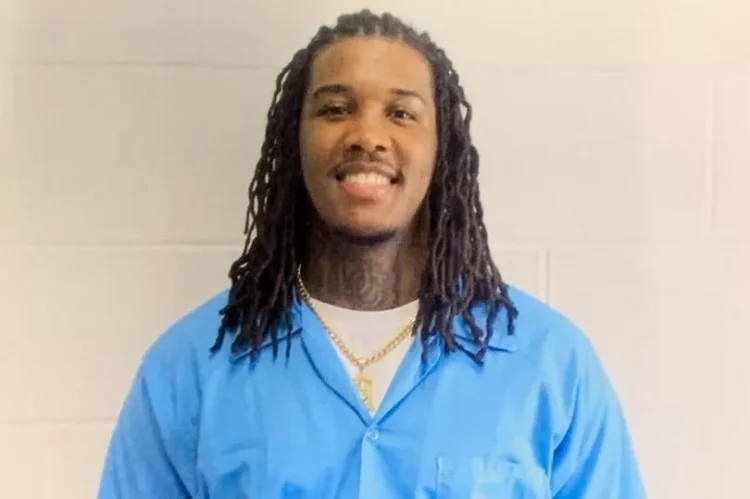By Aaron Miller
A Chicago man is suing the city’s police department for wrongful conviction, claiming his innocence in a case that has exposed significant flaws and potential biases in the investigation process.
Darien Harris, who was wrongly convicted in 2014 for a fatal shooting at a South Side gas station in 2011, has been released after serving 12 years of a 76-year sentence. His release came in December following efforts by The Exoneration Project, which revealed that the key eyewitness suffered from advanced glaucoma and had misrepresented his visual impairment.
But the man’s doctor deemed him legally blind nine years before the incident, court records show. A gas station attendant also testified that Harris wasn’t the shooter.
Commenting on his law suit, Harris said: “I don’t have any financial help. I’m still (treated like) a felon, so I can’t get a good job. It’s hard for me to get into school,” he said. “I’ve been so lost. I feel like they took a piece of me that is hard for me to get back.”
Harris was an 18-year-old high school senior when he was arrested. The legally blind eyewitness picked Harris out of a police lineup and identified him in court.
The eyewitness testified that he was riding his motorized scooter near the gas station when he heard gunshots and saw a person aiming a handgun. He also added that the shooter bumped into him. Harris’ trial attorney asked the witness if his diabetes affected his vision. He said yes but denied he had vision problems.
His lawsuit is seeking compensation for the years lost behind bars, with legal experts estimating potential damages in the millions, based on similar cases of wrongful convictions. He is expected to win at least $17m, and could even surpass that estimate.
Chicago police is notorious for corruption and evidence fiddling.
Another Harris, Lee Harris was freed in 2023, after spending 33 years for a murder he did not commit.
Evidence later revealed that a corrupt police officer notorious for being among a cohort of officers investigated for torture at Guantanamo Bay had coerced him into a confession
In 2018, a landmark settlement in Chicago awarded $17 million to Jacques Rivera, another wrongfully convicted man, who spent 21 years in jail for a crime he did not commit, pointing to a possible precedent for Smith’s case.
Rivera’s wrongful conviction was also linked to unreliable eyewitness testimony and alleged police misconduct, drawing parallels to Smith’s situation.
Currently, a Missouri judge is hearing evidence indicating that a prosecutor believes another man, Christopher Dunn, who has spent 33 years in prison for a murder, is actually innocent. This follows admissions from the two witnessed that they lied in court to have him jailed.
In the case at hand, Smith’s legal team argues that the conviction stemmed from a combination of investigative errors and deliberate misconduct.
They claim that police officers coerced the partially blind witness into identifying Smith as the perpetrator and that they fabricated evidence to strengthen their case. Proving these allegations will require compelling evidence, such as witness testimonies, documentation of police procedures, and possibly, forensic analysis.
The lawsuit not only seeks financial reparation but also aims to bring to light the systemic issues within the Chicago Police Department. Smith’s case underscores the need for police reform, particularly in handling eyewitness testimony and ensuring evidence integrity.
“We intend to use all available means to prove that Mr. Smith’s conviction was a grave miscarriage of justice,” said Smith’s attorney, Jane Doe. “This case highlights serious flaws in the investigation process and potential biases that need to be addressed to prevent future injustices.”
The impact of Smith’s lawsuit could extend beyond the courtroom, affecting the reputation of the Chicago Police Department. If the allegations of evidence falsification and investigative bias are proven, it could lead to widespread calls for accountability and reform within the department.
Smith’s ordeal began in 1995 when he was arrested and charged with the murder of a local shopkeeper. The prosecution’s case relied heavily on the testimony of an eyewitness with significant visual impairments, whose credibility was later questioned. Despite these doubts, Smith was convicted and sentenced to life in prison.
In recent years, wrongful convictions have garnered increased attention, with several high-profile cases resulting in significant financial settlements. These cases often reveal systemic issues, such as reliance on unreliable witnesses, inadequate defense, and police misconduct, that contribute to unjust outcomes.
Smith’s lawsuit is a stark reminder of the long-lasting impact of wrongful convictions on individuals and their families. As his case moves forward, it will serve as a critical examination of the practices within the Chicago Police Department and the justice system at large.
The Chicago Police Department has not yet commented on the lawsuit, but the case is expected to attract significant media attention and public scrutiny. A




